
Some of your favorite restaurants may be struggling to stay afloat.
Several well-known chains have filed petitions for bankruptcy protection in 2024.
That doesn’t necessarily mean that all of these companies are actually bankrupt or that they will be going out of business soon. But it does mean the future is cloudier than it used to be for these restaurants. And in fact, at least one is now gone for good.
Here’s a look at restaurant chains that have filed for bankruptcy this year.
Buca di Beppo
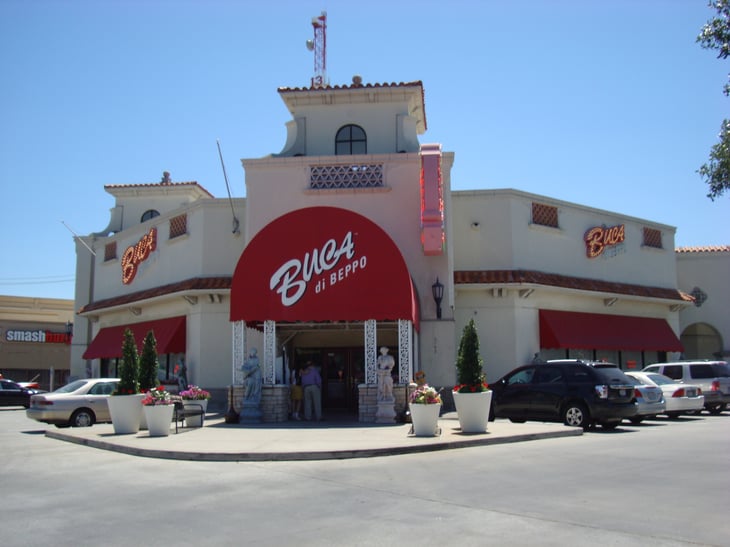
When this chain filed its petition for bankruptcy protection: August
The type of bankruptcy protection it sought: Chapter 11
Buca di Beppo is a family-style Italian restaurant that is restructuring its 44 “core locations.” At the same time, the chain is opening one new location.
In a press release, William Snyder, Buca’s chief restructuring officer, said:
“We believe this path will best allow us to continue to serve Buca’s patrons and communities for many years to come. We are open for business in 44 locations, and we expect day-to-day operations to continue uninterrupted. We anticipate moving through this process as quickly and efficiently as possible to emerge as a stronger organization built for the future.”
Tender Greens and Tocaya

When this chain filed its petition for bankruptcy protection: July
The type of bankruptcy protection it sought: Chapter 11
Los Angeles-based One Table Restaurant Brands filed for bankruptcy so it could restructure its business, which includes 24 Tender Greens and 15 Tocaya restaurants.
The company plans to keep all locations open. In a press release, Harald Herrmann, CEO of One Table Restaurant Brands, said:
“We ran every possible option to the ground in order to avoid bankruptcy, but ultimately, restructuring our debt is the best decision for our team members, valued vendor partners and loyal guests. We expect to emerge from this restructuring process stronger and better positioned to prosper in our hyper-competitive industry.”
Rubio’s Coastal Grill
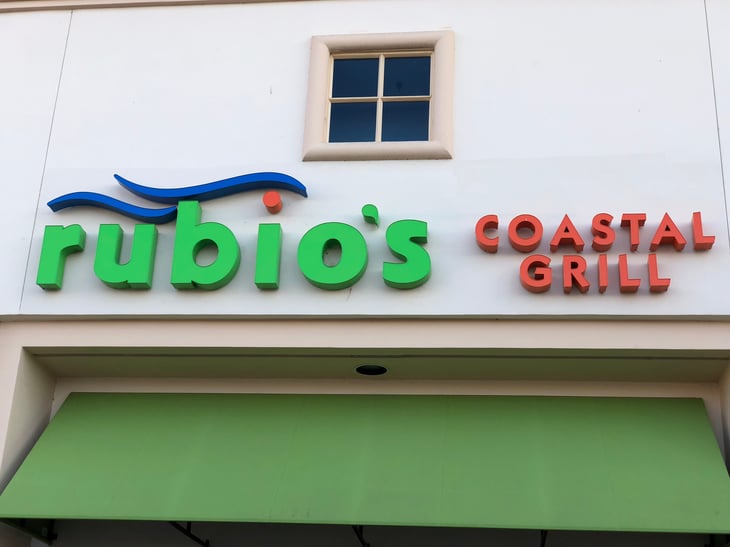
When this chain filed its petition for bankruptcy protection: June
The type of bankruptcy protection it sought: Chapter 11
Fast casual restaurant chain Rubio’s Coastal Grill filed to reorganize its business, which currently includes locations in California, Arizona and Nevada. Its restaurants have remained open during the process.
In a press release, Rubio’s described the decision as a way to facilitate the sale of the business. The company says that it has seen less foot traffic due to more people working from home and that it has been negatively impacted by rising food and utility costs.
The company also said that increases to the minimum wage in California was one of the factors that “put pressure on” many of its locations. On June 1, Rubio’s closed 48 locations in the Golden State.
Melt Bar & Grilled
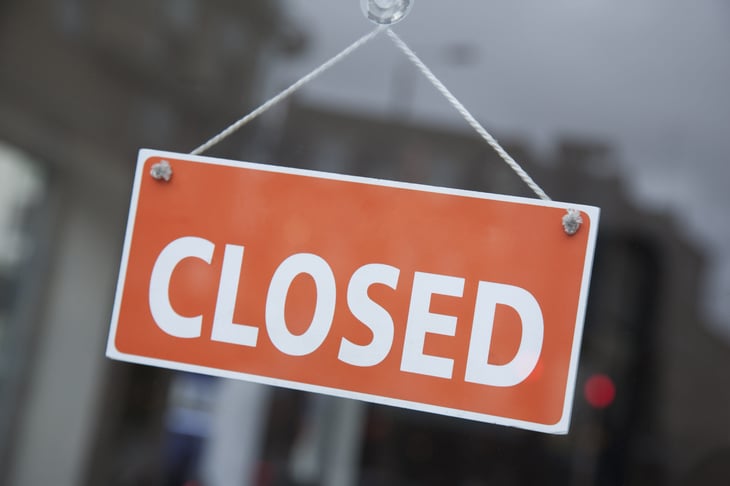
When this chain filed its petition for bankruptcy protection: June
The type of bankruptcy protection it sought: Chapter 11
Cleveland-based Melt Bar & Grilled filed for Chapter 11 bankruptcy after enduring a downturn in its fortunes in recent years.
The company once had more than a dozen locations. However, by the time of the bankruptcy filing, Nation’s Restaurant News reported that the number of restaurants had dwindled to just four, with one each in the Ohio cities of Akron, Lakewood, Mentor and Columbus. And then in July, the Columbus location also went belly-up.
The company has struggled with a higher cost of goods and labor and reported difficulty paying bills to landlords, providers and vendors.
Red Lobster
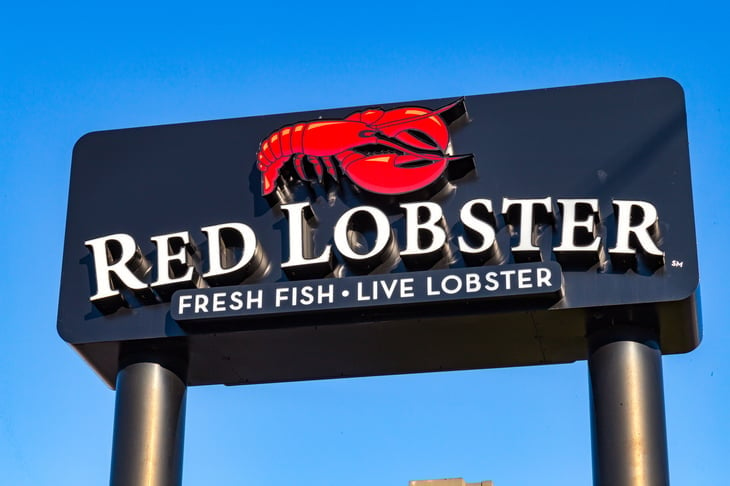
When this chain filed its petition for bankruptcy protection: May
The type of bankruptcy protection it sought: Chapter 11
Red Lobster filed for bankruptcy protection so it could improve its operations, “simplify the business through a reduction in locations” and pursue a sale of its assets, according to a press release.
More than 100 Red Lobster locations shut down in early summer, and 23 more had been projected to close by the end of August. The chain still has about 500 restaurants.
Tijuana Flats

When this chain filed its petition for bankruptcy protection: April
The type of bankruptcy protection it sought: Chapter 11
Tex-Mex chain Tijuana Flats filed for bankruptcy protection amid a change in ownership. In a press release, Tijuana Flats said the move came after “a unit-by-unit analysis of financial performance, occupancy costs, and market conditions.”
Tijuana Flats rolled out a new menu in April, as well as new packaging for takeout and delivery orders with the goal of speeding delivery times. In June, the chain hired turnaround specialist James Greco as the new CEO.
Sticky’s

When this chain filed its petition for bankruptcy protection: April
The type of bankruptcy protection it sought: Chapter 11
New York-based chicken tenders chain Sticky’s filed for bankruptcy protection in April, citing the COVID-19 pandemic and its aftermath.
The surge in remote workers and higher commodity prices hurt the company, forcing it to raise prices — which further reduced foot traffic.
SuperDeluxe and Boxer

When this chain filed its petition for bankruptcy protection: February
The type of bankruptcy protection it sought: Chapter 11
Portland, Oregon-based ramen chain Boxer and burger chain SuperDeluxe both filed for bankruptcy protection in February. Restaurant group MMMco. owns the two small chains.
In April, Boxer closed all its locations. In an Instagram post, Boxer said:
“The incredible challenges that we all faced as a community during the pandemic, compounded by inflated costs of goods and services, have not only profoundly affected our restaurant, but all of us and our communities as a whole. Despite the tireless efforts and dedication of our incredible team, and the unwavering support from all of you, our family and friends, it has become impossible to continue operating.”
SuperDeluxe still has a couple of locations that remain open.
Oberweis Dairy
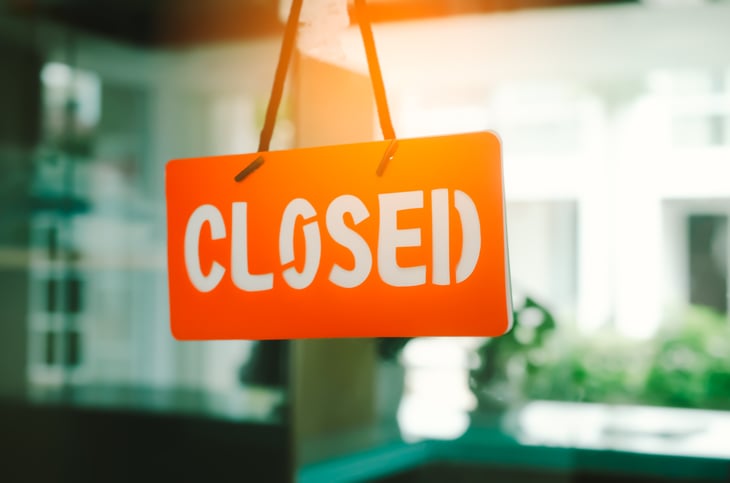
When this chain filed its petition for bankruptcy protection: April
The type of bankruptcy protection it sought: Chapter 11
After nearly 100 years in operation, fourth-generation family business Oberweis Dairy filed for bankruptcy protection in April. A private equity firm then bought Oberweis in May.
Oberweis Dairy — which sells milk products and operates ice cream stores — can be found mostly in the Chicago area, but it also has locations in other parts of Illinois as well as Indiana, Wisconsin, Ohio, North Carolina and Virginia.
